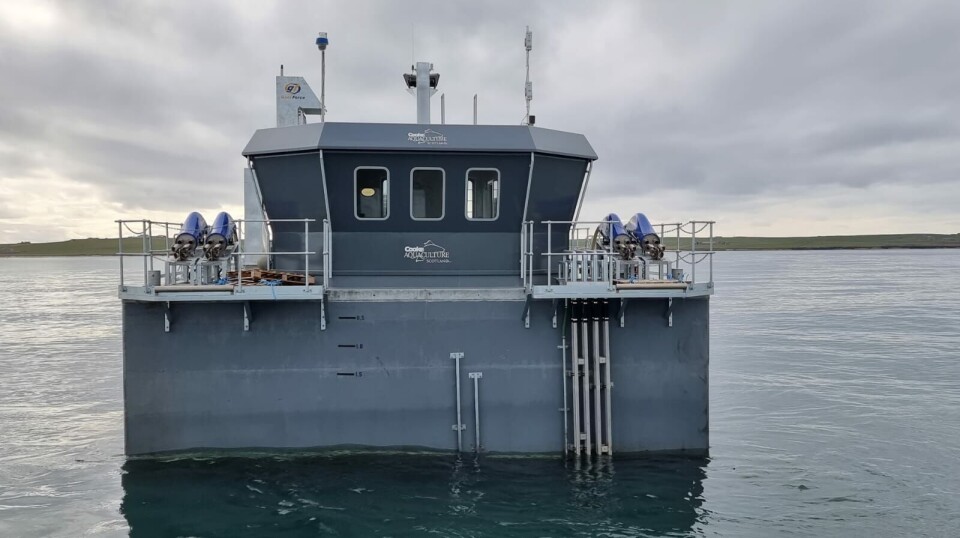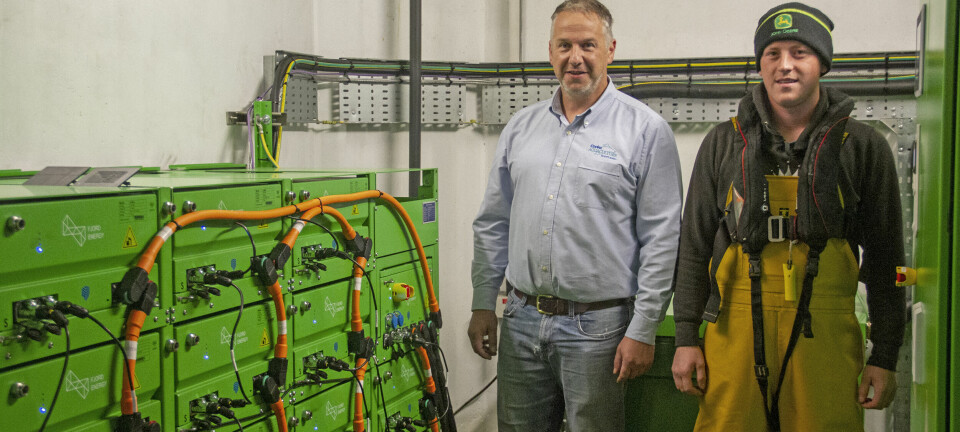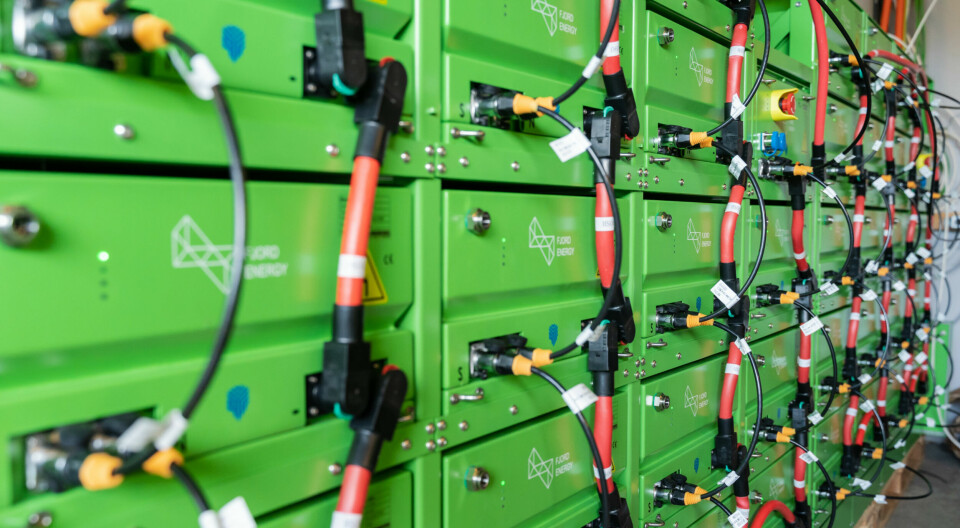
Hybrid power systems supplier builds new team for Scotland
Fjord Maritime has hired a branch manager and is recruiting engineers to serve fish farming market
Fjord Maritime, which supplies hybrid power systems for fish farm feed barges, has appointed a new branch manager for the UK as it seeks to strengthen its presence in Scotland.
Ryan McGlynn has joined from aquaculture supplier AKVA group Scotland, where he ran the team looking after repairs and servicing.
One of McGlynn’s first tasks is to recruit two engineers to form a Fjord Maritime team in Scotland, where there are currently seven of the company’s hybrid power units in operation on barges and two more on order.
“We’ve hired Ryan to continue developing our UK office to be a truly local company,” said global sales manager Torstein Nygård, adding that more staff will be recruited later.
Cooke and Loch Duart
Fjord Maritime supplies battery banks and control units for new-build barges and for retrofitting to existing barges.
It has two units operating on a new-build barge and a retrofitted barge at Cooke Aquaculture Scotland’s sites at Mill Bay and Vestness in Orkney, and one retrofit unit at Cooke’s Copister site in Shetland.
Fjord Maritime has also provided four retrofit units for Loch Duart barges at sites in the Hebrides and the west of Scotland, while Mowi Scotland has ordered two units, one for a new-build barge and one for an existing barge.
It’s healthy progress for Norway-based Fjord Maritime but the company has not yet made the great strides it hoped for in 2022, when Nygård predicted selling 20 systems in Scotland that year.
You have to be patient in the Scottish market. You have to prove your competence and service level and I believe we have done that.
Fjord Maritime global sales manager Torstein Nygård
“You have to be patient in the Scottish market,” said Nygård with the benefit of hindsight. “You have to prove your competence and service level and I believe we have done that.
Big ambitions
“We had and still have big ambitions in the Scottish market. That is the reason we are building up our office, to provide servicing and follow-up.”
He and McGlynn believe that while take-up of hybrid systems in Scotland has been slower than anticipated, there is a compelling case for adopting the technology, and sales will accelerate.
“The first installation we did was for Cooke at Mill Bay in April 2022. It has been running for almost two years,” said Nygård.
“If it had relied solely on a generator, it would have been running for 17,000 hours, and based on data we have collected the generator has run for 2,400 hours. That is a huge saving when it comes to fuel costs and a big reduction of emissions and noise.”

Emissions and noise have become more important as the attention of fish farmers, regulators, and consumers has focused more on environmental impacts. And McGlynn believes that having a quieter, cleaner feed barge may be an important asset when applying for permission for a new fish farm. In fact, hybrid barges may even become a requirement.
“If you can demonstrate as part of the planning process that you are ticking many boxes from an environmental aspect then permission is going to be easier to get,” said McGlynn.
“Noise reduction is something that is important,” added Nygård. “With a hybrid system you will run your generator for only four hours a day on average.”
The value of data
Power use data collected by the hybrid system’s control software also has a value in helping farmers run sites as efficiently as possible.
“In 2020, the way I sold the product was on fuel cost reduction,” said Nygård. “Now, it is about energy saving, using data as knowledge, trying to benchmark the different sites.”
The ability to keep equipment switched on when the generator isn’t running is another selling point, as it can save on repairs or replacement, explained Nygård.
“A lot of equipment does not like to be turned off, so you can save money by having a hybrid.”
Generators also benefit, said McGlynn, who is qualified as an electrical engineer. “A lot of generators (on non-hybrid barges) are running with hardly any load on them and it’s not good for them. They require a lot more maintenance.”

























































